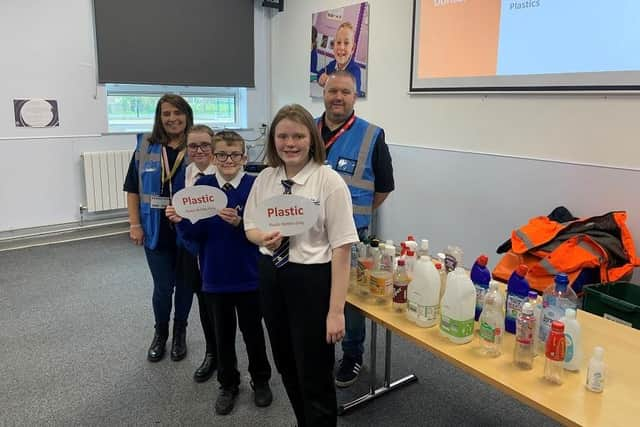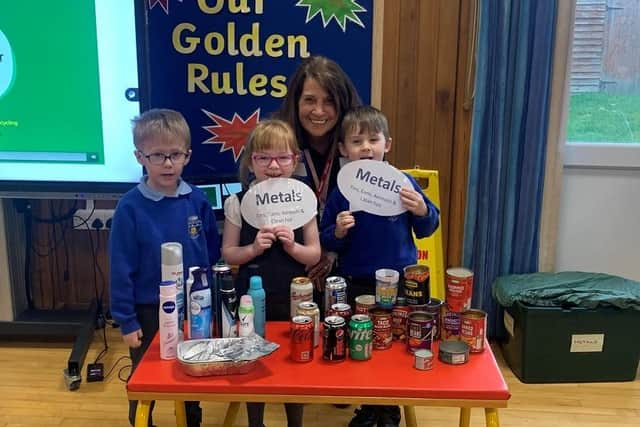More than 1,000 Doncaster children encouraged to recycle right
and live on Freeview channel 276
In partnership with its waste partner, SUEZ recycling and recovery UK (SUEZ), City of Doncaster Council launched a pilot campaign aimed at reducing the amount of non-recyclable waste in blue bins, which currently costs the council over £300,000 a year.
All five primary schools in Rossington were visited as part of the council’s delivery of educational messages about waste and recycling and to help raise awareness of the project. The schools visited were St Joseph’s, Grange Lane, St Michael’s, Pheasant Bank and Torndale Infants.
Advertisement
Hide AdAdvertisement
Hide AdWhile people often show the best intentions to recycle, they can sometimes be misinformed by what food labels and product packaging advise. With this in mind, it is important that residents should only recycle what can be processed locally in Doncaster.


Councillor Mark Houlbrook, Cabinet Member for Sustainability & Waste, said: “Anything that cannot be recycled which ends up in the recycling is classed as ‘contamination’ and must be removed and disposed of separately. This causes increased costs and can impact the amount of material which is sent for recycling.
“It is really important to educate all Doncaster residents including our youngsters about this, recycling doesn’t have to be confusing, but we must all play our part to ensure we use the correct bin for our waste. Our young people are all engaged and enthusiastic about recycling and the aim is that they pick up good recycling habits at an early age, which is something they can take home with them, discuss with their parents and all make a difference to increase recycling, whilst reducing contamination.
“It’s a proactive step that these young children can take within their local community and positively impact on the environment.
Advertisement
Hide AdAdvertisement
Hide Ad“We’d like to thank all the local primary schools for being so accommodating.”


As well as educating young people about the importance of ‘recycling right’, residents in Rossington will be taking part in the pilot project which will involve recycling teams closely looking at their recycling in each bin to make sure the right things have been placed in the correct bins. The aim of the project is to reduce contamination and increase Doncaster’s recycling rates.
Each household in the area received a letter before the pilot began, outlining that during the first week of February, any blue bins that were found to contain items that can’t be recycled would be informed so that they could make sure that they checked their recycling for next time. When the next collection cycle takes place next week (commencing 19 February 2024), blue bins containing anything that they shouldn’t, will not be emptied.
Residents are reminded that only plastic bottles, clean paper and card, tins, or cans (including aerosol cans) and tin foil should go in the blue bin.
For more information visit the City of Doncaster Council website at www.doncaster.gov.uk/bluebin
Comment Guidelines
National World encourages reader discussion on our stories. User feedback, insights and back-and-forth exchanges add a rich layer of context to reporting. Please review our Community Guidelines before commenting.